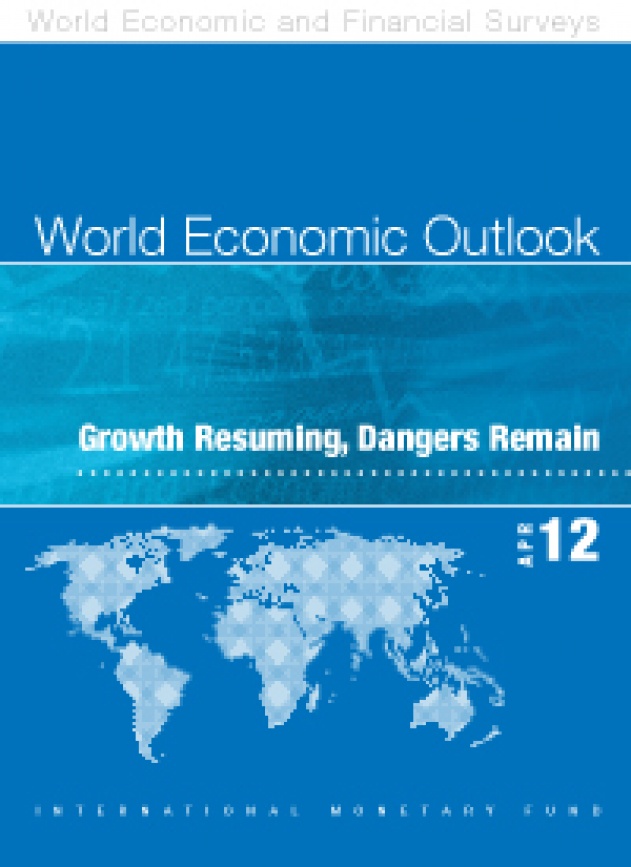
The economic outlook for Europe has deteriorated substantially, as a result of global shocks and the escalation of the euro area sovereign debt crisis. The IMF now projects that growth for all of Europe will slow from 2.3 percent in 2011 to 1.8 percent in 2012. The projections are predicated on the assumption that strong action is taken to contain the current crisis, but downside risks remain substantial.
“Still Positive but a Bit Uncertain”
“The outlook for Europe is a bit uncertain. It's still positive but a bit uncertain. There was a wonderful beginning of the year, very strong growth, very healthy growth, but obviously there has been a somewhat surprising slowdown in the second half. We still predict positive growth next year, but of course when the economy slows down, we never know if it's going to trip into recession. And furthermore, there is the whole uncertainty with respect to the European debt crisis,” said Antonio Borges, Director of the IMF’s European Department.
“Negative Shocks”
After a strong start in 2011, a barrage of negative shocks slowed the global economy toward mid-year and exposed underlying economic fragilities. In this context, Europe had to cope with surprisingly soft economic activity in the United States, high commodity prices, and disrupted global supply chains from Japan’s earthquake and tsunami. But Europe also contributed to the slowdown with home-grown difficulties from escalating tensions in the euro area’s sovereign debt and financial markets. Sovereign spreads widened sharply in the program countries Greece, Ireland, and Portugal, and tensions spread to Italy and Spain and more broadly through the entire financial system. While emerging Europe continues to do relatively well, it too could be affected, given its close financial and economic links with the west.
“Restoring Confidence”
“We think that restoring confidence in Europe at this point demands fundamentally a very cooperative approach where every single country, every single regulatory, every single market participant will work together to achieve the same goal, and that goal must be to go back to a more normal situation in monetary and financial markets in Europe. This requires that the financial sector be made stronger and there are several proposals along those lines. It's very important that banks and other institutions keep financing the economy in a normal manner. It's also very important that we restore confidence in the debt markets, that investors can go back to these markets and keep on buying debt from other countries in Europe”
Waning growth momentum and rising financial tensions call for determined policy action. Most urgently, a consistent, cohesive, and cooperative approach to monetary union needs to be adopted by all euro area stakeholders to secure a durable solution to the euro area crisis.
“Today there are very big differences across countries which should not exist because all of these countries have the same access to advanced technology, the same highly trained and educated labor force, the same access to finance, et cetera, and yet there are very big discrepancies in their growth performance. We point to the good examples, countries like Sweden or the Netherlands through very fundamental reforms got their economies on a very healthy and sustained growth path which is very, very promising, so others might want to follow those examples.”
Growth in advanced Europe is projected to decline. Developments will continue to be subdued in countries under market pressure, which forces strong austerity and sharp private-sector balance sheet deleveraging.
United Kingdom – Weak Income Prospects:
Growth in the United Kingdom will remain hampered by weak income prospects before rebalancing in 2012. Countries free from market pressure, such as Germany and Sweden, are better off, but nonetheless face strong headwinds from the global slowdown and necessary repair of public finances. Banks’ funding pressures are also denting confidence, with negative consequences for private domestic demand. Output gaps will close more slowly than previously expected and inflationary pressures will recede.
The softer outlook calls for an adjustment of the macroeconomic policy mix. As downward risks persist, monetary policy should best be eased further. In particular, the European Central Bank has room to cut its policy rate.
Perhaps not Right Time for Fiscal Austerity?
On the fiscal front, countries with credible medium-term fiscal consolidation plans or front-loaded fiscal adjustment should allow full play of automatic stabilizers; countries with historically low funding costs should also consider delaying some of their fiscal adjustment if activity undershoots current expectations. In contrast, countries under market pressure have no choice but to stick to their adjustment plans.
“Thin Capital Buffers” at Banks
Capital buffers also remain thin in many banks, despite the welcome increases already undertaken and planned in the context of the latest pan-European stress tests. There is a risk that low confidence in banks would continue to undermine their access to funding, risking a credit crunch with pernicious feedbacks to economic and financial performance.. In that context, ambitious actions to restore the ability of the banking sector to finance the economy are urgently needed, including measures to bring additional capital to European banks, if necessary using European Financial Stability Facility resources, as well as a longer term liquidity facility from the European Central Bank.
“There is a lot more to be done in particular on the financial front. We have created a very good environment for credit and credit flows easily from country to country, but many other financial flows are still restricted and there are obstacles, in particular equity capital. We need to move toward cross-border mergers and acquisitions to create real European companies,” Borges said. (MAP - Europe GDP)
FILM REPORT – “Global Financial Instability Persists” -
diplomaticallyincorrect.org/films/movie/global-financial-instability-persists/28644
LAST ARTICLE – (10-3-2011) –“Vicious Cycle & Contagion…” -
diplomaticallyincorrect.org/films/blog_post/vicious-cycle-contagion-in-practice-greece-blames-recession-for-not-meeting-deficit-targets-by-ambassador-mo/35721
By Ambassador Muhamed Sacirbey
Facebook - Become a Fan at “Diplomatically Incorrect”
Twitter – Follow us at “DiplomaticallyX
More “Money Flash” Related Film Reports at INTERNATIONAL FINANCIAL CRISIS Channel -
diplomaticallyincorrect.org/c/international-financial-crisis

